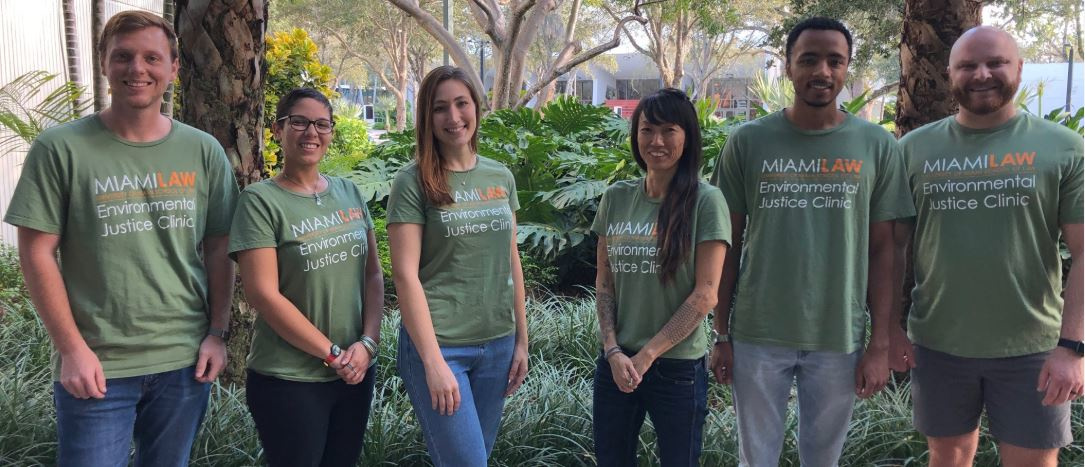Climate and Energy Justice
Addressing climate change is at the forefront of the Clinic’s work due to its widespread impacts on the communities we serve. The Climate and Energy Justice team works to secure a safe and healthy climate for those on the frontlines of the climate movement.
Stormwater Coalition
This team works to address the impacts of stormwater pollution and violations of the Clean Water Act in Miami-Dade County. Working alongside Miami Waterkeeper, Everglades Law Center, and PEER Group, the Clinic supports the coalition with litigation, education, and community outreach.
Impact Litigation: Old Smokey
The Clinic engages in impact litigation to redress harm to the environment and human health. An example is the Old Smokey case, a class action on behalf of residents and property owners in West Coconut Grove who were subjected to decades of toxic ash and pollution from a waste incinerator operated by the City of Miami.
Extreme heat has become a life-or-death issue in South Florida. The Heat Justice team works to mitigate and manage the impacts of heat on outdoor workers and marginalized communities. It pursues litigation over heat-related impacts and files public comments on proposed plans and rules.
Housing Justice
Through policy campaigns and interdisciplinary research, tools, and litigation, this team works to ensure that housing is a human right and property rights are secure. Check out one of our tools, the Displacement Vulnerability and Mitigation Tool, here.
Thriving Communities
Working closely with the Overtown community, this team seeks systemic change in Overtown through policy campaigns and interdisciplinary research to ensure residents can thrive. Taking collective action, the team advocates for improvements to public spaces, transportation, and food access.
Indigenous Justice
Through Indigenous Peoples-led advocacy, this team seeks to support Indigenous Peoples in their pursuit of justice and self-determination. Through litigation and interdisciplinary research, the team works alongside Indigenous Peoples in their pursuit of protection of cultural lifeways and sovereignty over their lands and historical sites.

Past Advocacy
The Environmental Justice Clinic’s prior projects include:
- Securing environmental protections for residents in Riviera Beach, Florida;
- Advocating for residents of Miami Gardens battling noise pollution;
- Procuring remediation of a toxic dump site in Fort Myers, Florida;
- Restoring essential transportation for Overtown residents in Miami, Florida;
- Developing a Community Benefits Agreement (CBA) template and general resources guide;
- Examining the affirmative marketing practices of an affordable housing development to ensure compliance with local, state, and federal regulations;
- Conducting an environmental health disparity analysis of Miami-Dade County;
- Developing community resources on right-to-know legislation;
- Analyzing the relationship between the displacement and form-based codes, such as Miami21 and Urban Center Districts in unincorporated Miami-Dade County;
- Conducting a comparative analysis of flood risk disclosures across the United States for homeowners and renters; and
- Providing litigation support in a federal class action lawsuit seeking to address the environmental health consequences of exposure to a toxic dump site in the heart of a disenfranchised and historically discriminated against African-American community of Dunbar in Fort Myers, Florida.
For More Information
Please contact environmentaljusticeclinic@law.miami.edu.




